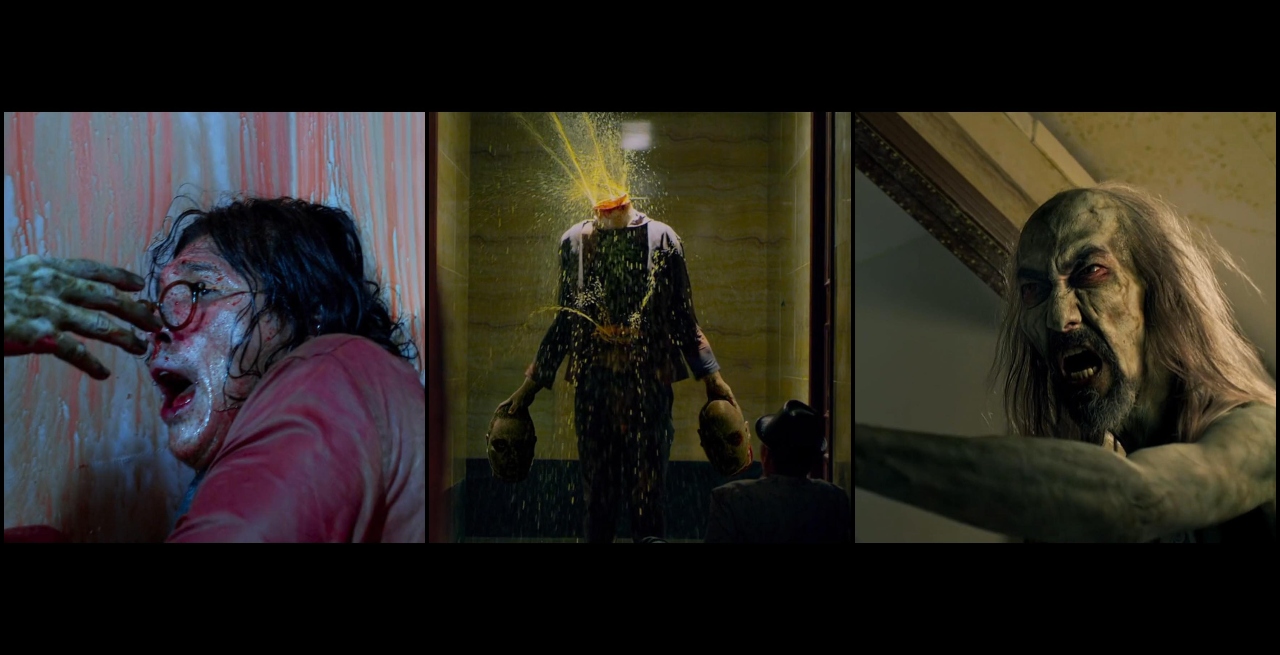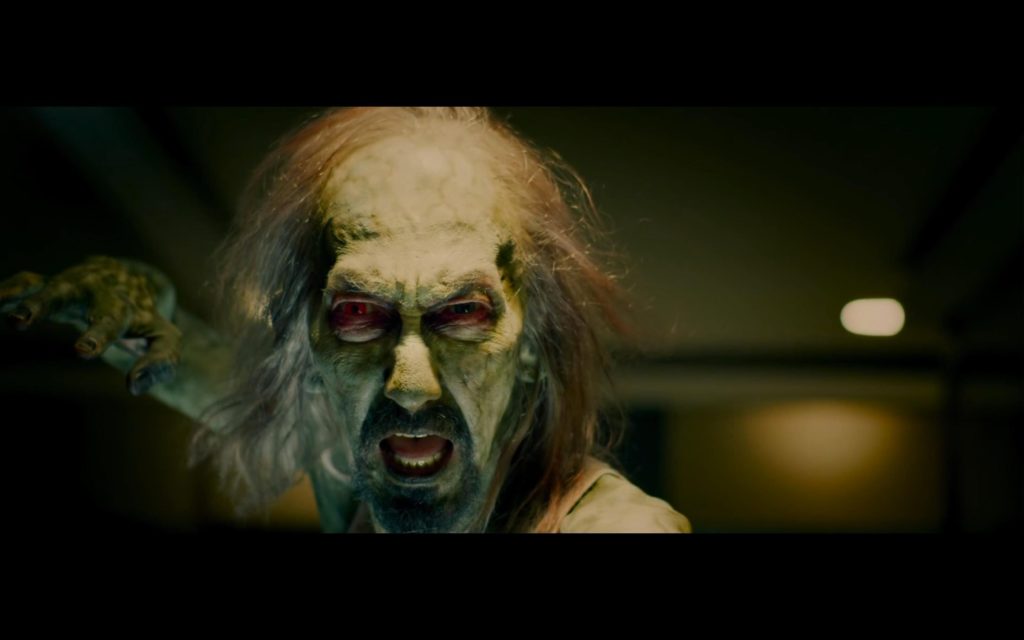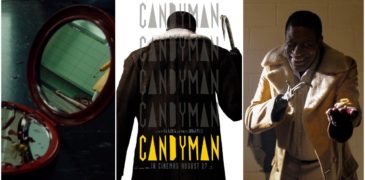
Like the rest of the world, Hong Kong is slap bang in the middle of a housing crisis.
With apartment sizes plummeting while prices skyrocket, some are forced into spaces no bigger than 20 square feet, paying up to $500,000 for a space where stretching your limbs out is a luxury. Conversely, Hong Kong also has the highest concentration of mega-millionaires in the world, leading any sane person to question the uneven distribution of wealth throughout the region. In his latest offering Coffin Homes, the witty and irreverent Fruit Chan takes on the ever widening chasm between rich and poor – and presents a world where the latter are forced into cohabitation with the undead just to save on astronomical rent charges. That’s right, in Chan’s vision, even the sweet release of death is not enough to escape from the cold and unforgiving grasp of late-stage capitalism.

Fruit Chan is a director known for his unflinching satire and presentation of Hong Kong’s societal ills through a lens of pitch black humour. Whether this be from the fetus-eating hunt for eternal youth depicted in Dumplings or the inescapable, gaping maw of the mall industry presented in Hollywood Hong Kong. Loaded with hefty amounts of Mo lei tau style slapstick from the get go, Coffin Homes is billed as an anthology, with the thread of each of the three separate stories weaving together at the end to present one surprisingly heartwarming and sometimes hilarious tale. Frequent Chan collaborator Wong You-Nam provides the link between the tales as Jimmy Lam, long-suffering realtor under pressure to find the perfect space for his living clients, as well as a place to rest peacefully for his dead ones.
Twists and turns abound that are strange even for Hong Kong cinema standards. Coffin Homes opens with a Granny, so infuriated by hearing her insufferable offspring bicker about who gets what share of the hefty inheritance, that she ushers in a demonic bloodbath. There’s also The Butcher (Paul Che Biu-law), an emaciated, feral specter who cuts quite an imposing figure but ultimately ends up being one of Coffin Homes funniest features as a spirit who refuses to be evicted from his apartment by someone with a pulse.
And the busy kindergarten of ghost children in horror gains the adorable Lil Keung (Marek Li Hoi-lam), a pesky little ghoul who just wants a family to eat fishball noodles with. Sadly there’s no more room for the little soul, as landlord Mr Lam (Tai Bo) has crammed a tiny apartment with multiple families all vying for space to exist comfortably.

Admittedly, the complex world of market fluctuations and real estate isn’t exactly the most engaging topic on the planet, and the lack of real scares means Coffin Homes is more of a drawn-out drama with comedic elements, one that quite often repeats on itself and unnecessarily circles the same ideas to drive home a point that anyone with half a brain will already have gotten a solid grasp on. The almost two hour runtime feels especially arduous at times, and by the time the bizarre finale rolls around, it takes decapitation, geysers of neon paint, a depressingly urban vision of Hell and a towering kaiju deity to reignite the spark last felt in the berserk opening scene. But if you can settle yourself from the constant tonal whiplash of Coffin Homes, you might find yourself moved by an ending which reminds us that no matter who we are, what country we originate from, what spectral plane we now dwell on, all any of us want is our own little corner of this world to exist in – and a place to call home.

More Film Reviews
Punk Samurai Slash Down is a 2018 Japanese period action/drama, written by Kankurô Kudô and directed by Gakuryû Ishii (formerly known as Sogo Ishii). The film is based on the… Jishu eiga, abbreviated from jishu seisaku eiga and translating roughly to “autonomously produced”, is an elusive, self-sufficient form of filmmaking popularised during the decline of mainstream Japanese cinema around the… Director Nia DaCosta’s kind of mostly sequel to the 1992 original revives the Candyman. Say his name five times in the mirror if you dare, as Cabrini Green has dark… I honestly haven’t had this much “fun” while watching a horror movie in quite a long time. Shudder release Vicious Fun is true to the name; it carries immense nostalgic… The breakdown of friendships into the realm of horror has always been a theme fascinating me; the amount of paranoia needed to turn an object of comfort into terror being… The evolution of action films has come a long way over the years; from cheesy one-liners and over-the-top shootouts, the genre has progressed to slick visuals and epic hand-to-hand combat….Punk Samurai Slash Down (2018) Film Review – Audacious Reimagining of Jidaigeki Cinema
Crazy Thunder Road (1980) Film Review – Cyberpunk Biker Action
Candyman (2021) Film Review – Don’t Speak His Name
Vicious Fun (2020) Film Review – An Aptly Titled Horror Comedy
Bleed With Me Film Review – Lets Make A Blood Pact
Re:Born (2016) Film Review – Dont Bring A Gun To A Knife Fight

Writer, podcaster and reviewer over at HornBloodFire.
Lover of gore, ghosts and girls getting their own back.





